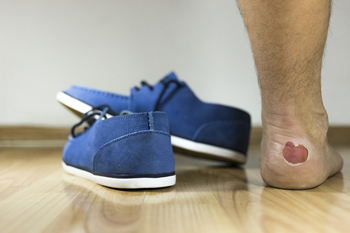 If you’ve worn shoes that fit incorrectly or are too tight, the friction that occurs may cause blisters to form on the toes and feet. They are observed as small areas that are filled with fluid, which is often seen in the top layer of the skin. The blister serves as a defense mechanism to protect the skin against germs and infections from entering the body, as a result of the skin disintegrating from excess pressure. There may be many causes of blisters, including sunburn, frostbite, or a skin condition such as dermatitis. Some people may find that insect bites may be a cause of blisters, in addition to having an allergic reaction to specific chemicals. Research has shown the importance of leaving the bister alone until it can dissolve naturally, which generally occurs when the skin is fully healed. Preventative measures can be taken by ceasing to wear the shoes or stopping the activity that caused the blisters. For severe blisters on the feet, please speak with a podiatrist as quickly as possible to learn how they can be treated properly.
If you’ve worn shoes that fit incorrectly or are too tight, the friction that occurs may cause blisters to form on the toes and feet. They are observed as small areas that are filled with fluid, which is often seen in the top layer of the skin. The blister serves as a defense mechanism to protect the skin against germs and infections from entering the body, as a result of the skin disintegrating from excess pressure. There may be many causes of blisters, including sunburn, frostbite, or a skin condition such as dermatitis. Some people may find that insect bites may be a cause of blisters, in addition to having an allergic reaction to specific chemicals. Research has shown the importance of leaving the bister alone until it can dissolve naturally, which generally occurs when the skin is fully healed. Preventative measures can be taken by ceasing to wear the shoes or stopping the activity that caused the blisters. For severe blisters on the feet, please speak with a podiatrist as quickly as possible to learn how they can be treated properly.
Blisters may appear as a single bubble or in a cluster. They can cause a lot of pain and may be filled with pus, blood, or watery serum. If your feet are hurting, contact Brent Harwood, DPM of Southeast Podiatry. Our doctor can provide the care you need to keep you pain-free and on your feet.
Foot Blisters
Foot blisters are often the result of friction. This happens due to the constant rubbing from shoes, which can lead to pain.
What Are Foot Blisters?
A foot blister is a small fluid-filled pocket that forms on the upper-most layer of the skin. Blisters are filled with clear fluid and can lead to blood drainage or pus if the area becomes infected.
Symptoms
(Blister symptoms may vary depending on what is causing them)
Prevention & Treatment
In order to prevent blisters, you should be sure to wear comfortable shoes with socks that cushion your feet and absorb sweat. Breaking a blister open may increase your chances of developing an infection. However, if your blister breaks, you should wash the area with soap and water immediately and then apply a bandage to the affected area. If your blisters cause severe pain it is important that you call your podiatrist right away.
If you have any questions, please feel free to contact one of our offices located in Fairhope, Brewton, and Atmore, AL . We offer the newest diagnostic and treatment technologies for all your foot care needs.
Read more about Blisters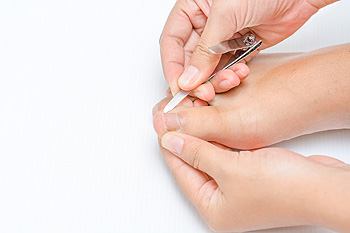 Being aware of your feet is essential in managing diabetes. Many foot conditions can develop as a result of being diabetic, including bunions, corns, foot ulcers, and blisters. Possible nerve damage may occur as a result of elevated blood sugar levels, and this may encourage a condition that is referred to as diabetic neuropathy to develop. The symptoms of this ailment may include a loss of feeling in the feet, which may often lead to unnoticed cuts and bruises that may be present. Nerve damage may cause the feet to change shape, which indicates a different size shoe should be worn. If this is not adhered to, friction may cause unwanted foot conditions to develop. Cracked skin may often be a gateway for germs to enter the body, and this may be alleviated by utilizing a moisturizing cream or lotion. If you are diabetic, it’s vital to consult with a podiatrist as quickly as possible to learn about how to properly take care of your feet.
Being aware of your feet is essential in managing diabetes. Many foot conditions can develop as a result of being diabetic, including bunions, corns, foot ulcers, and blisters. Possible nerve damage may occur as a result of elevated blood sugar levels, and this may encourage a condition that is referred to as diabetic neuropathy to develop. The symptoms of this ailment may include a loss of feeling in the feet, which may often lead to unnoticed cuts and bruises that may be present. Nerve damage may cause the feet to change shape, which indicates a different size shoe should be worn. If this is not adhered to, friction may cause unwanted foot conditions to develop. Cracked skin may often be a gateway for germs to enter the body, and this may be alleviated by utilizing a moisturizing cream or lotion. If you are diabetic, it’s vital to consult with a podiatrist as quickly as possible to learn about how to properly take care of your feet.
Diabetic foot care is important in preventing foot ailments such as ulcers. If you are suffering from diabetes or have any other concerns about your feet, contact Brent Harwood, DPM from Southeast Podiatry. Our doctor can provide the care you need to keep you pain-free and on your feet.
Diabetic Foot Care
Diabetes affects millions of people every year. The condition can damage blood vessels in many parts of the body, especially the feet. Because of this, taking care of your feet is essential if you have diabetes, and having a podiatrist help monitor your foot health is highly recommended.
The Importance of Caring for Your Feet
Patients with diabetes should have their doctor monitor their blood levels, as blood sugar levels play such a huge role in diabetic care. Monitoring these levels on a regular basis is highly advised.
It is always best to inform your healthcare professional of any concerns you may have regarding your feet, especially for diabetic patients. Early treatment and routine foot examinations are keys to maintaining proper health, especially because severe complications can arise if proper treatment is not applied.
If you have any questions please feel free to contact one of our offices located in Fairhope, Brewton, and Atmore, AL . We offer the newest diagnostic and treatment technologies for all your foot care needs.
Read more about Diabetic Foot Care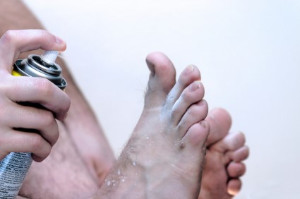 Athlete’s foot, also known as tinea pedis, is a common fungal infection that can affect people who work out at public gyms. You can develop this condition by wearing tight, sweaty shoes for a long period of time or by walking barefoot on damp surfaces around your gym. This fungal infection is typically described as being itchy and scaly, and it can actually spread to other parts of the body. If you are looking for ways to avoid getting athlete’s foot, you should avoid walking barefoot at the gym, and opt to wear flip-flops instead. However, if you do get athlete’s foot, you may be able to treat it with over-the-counter fungal cream. If the cream doesn’t work for you, you may want to see your podiatrist to find a treatment option for your specific case.
Athlete’s foot, also known as tinea pedis, is a common fungal infection that can affect people who work out at public gyms. You can develop this condition by wearing tight, sweaty shoes for a long period of time or by walking barefoot on damp surfaces around your gym. This fungal infection is typically described as being itchy and scaly, and it can actually spread to other parts of the body. If you are looking for ways to avoid getting athlete’s foot, you should avoid walking barefoot at the gym, and opt to wear flip-flops instead. However, if you do get athlete’s foot, you may be able to treat it with over-the-counter fungal cream. If the cream doesn’t work for you, you may want to see your podiatrist to find a treatment option for your specific case.
Athlete’s Foot
Athlete’s foot is often an uncomfortable condition to experience. Thankfully, podiatrists specialize in treating athlete’s foot and offer the best treatment options. If you have any questions about athlete’s foot, consult with Brent Harwood, DPM from Southeast Podiatry. Our doctor will assess your condition and provide you with quality treatment.
What Is Athlete’s Foot?
Tinea pedis, more commonly known as athlete’s foot, is a non-serious and common fungal infection of the foot. Athlete’s foot is contagious and can be contracted by touching someone who has it or infected surfaces. The most common places contaminated by it are public showers, locker rooms, and swimming pools. Once contracted, it grows on feet that are left inside moist, dark, and warm shoes and socks.
Prevention
The most effective ways to prevent athlete’s foot include:
Symptoms
Athlete’s foot initially occurs as a rash between the toes. However, if left undiagnosed, it can spread to the sides and bottom of the feet, toenails, and if touched by hand, the hands themselves. Symptoms include:
Diagnosis and Treatment
Diagnosis is quick and easy. Skin samples will be taken and either viewed under a microscope or sent to a lab for testing. Sometimes, a podiatrist can diagnose it based on simply looking at it. Once confirmed, treatment options include oral and topical antifungal medications.
If you have any questions, please feel free to contact one of our offices located in Fairhope, Brewton, and Atmore, AL . We offer the newest diagnostic and treatment technologies for all your foot care needs.
Read more about How to Deal with Athlete's Foot
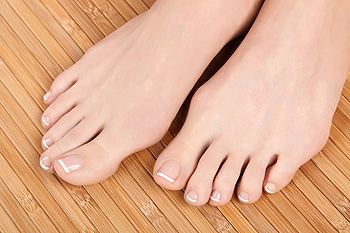 Many diabetic patients are affected by infections, poor circulation, or nerve damage. Research has shown that maintaining proper foot care may alleviate foot conditions that are associated with diabetes. This may include accurately monitoring blood sugar, exercising regularly, and ingesting fruits and vegetables as part of a healthy lifestyle. It may also be beneficial to wash and dry your feet on a daily basis followed by a thorough inspection that may show any sores or cuts that may be present. If there are corns, calluses, or other foot conditions, it’s important to be under the medical supervision of a podiatrist who can properly remove them, in addition to correctly trimming the toenails. It’s important to choose the right shoes and socks that are worn for the majority of the day, which may possibly avoid potential foot conditions.
Many diabetic patients are affected by infections, poor circulation, or nerve damage. Research has shown that maintaining proper foot care may alleviate foot conditions that are associated with diabetes. This may include accurately monitoring blood sugar, exercising regularly, and ingesting fruits and vegetables as part of a healthy lifestyle. It may also be beneficial to wash and dry your feet on a daily basis followed by a thorough inspection that may show any sores or cuts that may be present. If there are corns, calluses, or other foot conditions, it’s important to be under the medical supervision of a podiatrist who can properly remove them, in addition to correctly trimming the toenails. It’s important to choose the right shoes and socks that are worn for the majority of the day, which may possibly avoid potential foot conditions.
Diabetic foot care is important in preventing foot ailments such as ulcers. If you are suffering from diabetes or have any other concerns about your feet, contact Brent Harwood, DPM from Southeast Podiatry. Our doctor can provide the care you need to keep you pain-free and on your feet.
Diabetic Foot Care
Diabetes affects millions of people every year. The condition can damage blood vessels in many parts of the body, especially the feet. Because of this, taking care of your feet is essential if you have diabetes, and having a podiatrist help monitor your foot health is highly recommended.
The Importance of Caring for Your Feet
Patients with diabetes should have their doctor monitor their blood levels, as blood sugar levels play such a huge role in diabetic care. Monitoring these levels on a regular basis is highly advised.
It is always best to inform your healthcare professional of any concerns you may have regarding your feet, especially for diabetic patients. Early treatment and routine foot examinations are keys to maintaining proper health, especially because severe complications can arise if proper treatment is not applied.
If you have any questions please feel free to contact one of our offices located in Fairhope, Brewton, and Atmore, AL . We offer the newest diagnostic and treatment technologies for all your foot care needs.
Read more about Diabetic Foot Conditions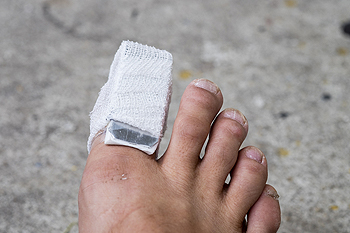 Many bones are located in the foot and they all work together to provide optimum balance necessary to effectively walk and run. If something heavy should fall on your toe or if you fall down, you may experience pain and discomfort due to a broken toe. You may notice the obvious symptoms, which may include bruising and swelling, or continued pain and throbbing. Research has shown the importance of having a proper diagnosis performed, which most likely will include having an X-ray taken. If a broken toe is confirmed, treatment should commence as quickly as possible. This may include taping the toe to the toe next to it, resetting the bone for more severe fractures, or undergoing surgery. Please consult with a podiatrist for advice on how to treat a broken toe.
Many bones are located in the foot and they all work together to provide optimum balance necessary to effectively walk and run. If something heavy should fall on your toe or if you fall down, you may experience pain and discomfort due to a broken toe. You may notice the obvious symptoms, which may include bruising and swelling, or continued pain and throbbing. Research has shown the importance of having a proper diagnosis performed, which most likely will include having an X-ray taken. If a broken toe is confirmed, treatment should commence as quickly as possible. This may include taping the toe to the toe next to it, resetting the bone for more severe fractures, or undergoing surgery. Please consult with a podiatrist for advice on how to treat a broken toe.
A broken toe can be very painful and lead to complications if not properly fixed. If you have any concerns about your feet, contact Brent Harwood, DPM from Southeast Podiatry. Our doctor will treat your foot care needs.
What to Know About a Broken Toe
Although most people try to avoid foot trauma such as banging, stubbing, or dropping heavy objects on their feet, the unfortunate fact is that it is a common occurrence. Given the fact that toes are positioned in front of the feet, they typically sustain the brunt of such trauma. When trauma occurs to a toe, the result can be a painful break (fracture).
Symptoms of a Broken Toe
Generally, it is best to stay off of the injured toe with the affected foot elevated.
Severe toe fractures may be treated with a splint, cast, and in some cases, minor surgery. Due to its position and the pressure it endures with daily activity, future complications can occur if the big toe is not properly treated.
If you have any questions please feel free to contact one of our offices located in Fairhope, Brewton, and Atmore, AL . We offer the newest diagnostic and treatment technologies for all your foot care needs.
Read more about What to Know About a Broken Toe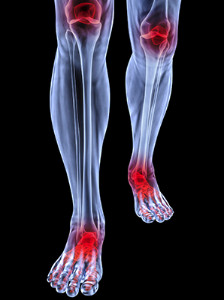 Rheumatoid Arthritis occurs when the immune system attacks the joints and causes pain and inflammation. Symptoms of RA tend to come and go, and you may have flare-ups when your symptoms are worse than usual. People with this condition commonly experience symptoms in their feet. The main symptom of RA is joint pain. This pain is typically described as a “throbbing” or “aching” sensation that is worse in the mornings or after a period of inactivity. Another common sign is joint stiffness that makes moving your joints difficult. This stiffness may occur in the morning, but if it occurs longer than a half hour, you should see your podiatrist immediately.
Rheumatoid Arthritis occurs when the immune system attacks the joints and causes pain and inflammation. Symptoms of RA tend to come and go, and you may have flare-ups when your symptoms are worse than usual. People with this condition commonly experience symptoms in their feet. The main symptom of RA is joint pain. This pain is typically described as a “throbbing” or “aching” sensation that is worse in the mornings or after a period of inactivity. Another common sign is joint stiffness that makes moving your joints difficult. This stiffness may occur in the morning, but if it occurs longer than a half hour, you should see your podiatrist immediately.
Because RA affects more than just your joints, including the joints in your Feet, it is important to seek early diagnosis from your podiatrist if you feel like the pain in your feet might be caused by RA. For more information, contact Brent Harwood, DPM of Southeast Podiatry. Our doctor will assist you with all of your podiatric concerns.
What Is Rheumatoid Arthritis?
Rheumatoid Arthritis (RA) is an autoimmune disorder in which the body’s own immune system attacks the membranes surrounding the joints. Inflammation of the lining and eventually the destruction of the joint’s cartilage and bone occur, causing severe pain and immobility.
Rheumatoid Arthritis of the Feet
Although RA usually attacks multiple bones and joints throughout the entire body, almost 90 percent of cases result in pain in the foot area.
Symptoms
Diagnosis
Quick diagnosis of RA in the feet is important so that the podiatrist can treat the area effectively. Your doctor will ask you about your medical history, occupation, and lifestyle to determine the origin of the condition. Rheumatoid Factor tests help to determine if someone is affected by the disease.
If you have any questions please feel free to contact one of our offices located in Fairhope, Brewton, and Atmore, AL . We offer the newest diagnostic and treatment technologies for all your foot care needs.
Read more about Rheumatoid Arthritis in the FeetAnesthesiology, anaesthesia or anaesthetics is the medical speciality that focuses on perioperative medicine and the administration of anesthesia.one of our podiatrists
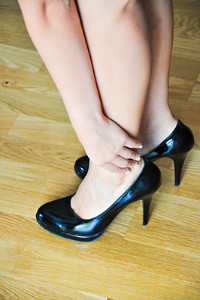
Terminology varies between countries. In North America, the medical speciality is called anesthesiology, a doctor practising it is termed an anesthesiologist, and the treatment delivered is referred to as anesthesia. By contrast, in the United Kingdom and other countries following the British tradition, both the medical speciality and the treatment delivered are referred to as anaesthesia or anaesthetics, and the physician who performs them is termed an anaesthetist (in North America, the word anesthetist indicates a certified anesthesiologist assistant who delivers anesthesia under the supervision of a physician) or certified registered nurse anesthetist who in most states in the U.S. do not require physician supervision.
One of the fundamental practices of anesthesiologists is that of general anesthesia in which a person is placed in a medical coma. This is performed to permit surgery without the individual responding to pain (analgesia) during surgery or remembering the surgery.
If general anesthesia is not necessary, then regional anesthesia can be performed to induce analgesia in a region of the body. For example, epidural administration of a local anesthetic is commonly performed on the mother during childbirth to reduce the pain while permitting the mother to be awake and active in labor & delivery (general anesthesia would not permit this).
Read more about q If you experience numbness or a tingling sensation in the feet, you may have poor circulation. Additionally, some patients may feel a cramping or coldness in their toes and this may often be the result of the inability of the circulatory system to transport blood to the cells of the body. A condition known as peripheral vascular disease, which is also referred to as PVD, may often occur when the veins or arteries become blocked. This may cause wounds on the feet to heal slower than average, and may often be accompanied by a decrease in body temperature, which may cause the feet to feel cold. Research has shown that heart disease may be a leading cause of poor circulation, and this may include a specific condition known as arrhythmias, or an irregular heartbeat. If you are experiencing symptoms that are indicative of poor circulation in the feet, it’s advised to schedule a consultation with a podiatrist for additional information, including treatment options.
If you experience numbness or a tingling sensation in the feet, you may have poor circulation. Additionally, some patients may feel a cramping or coldness in their toes and this may often be the result of the inability of the circulatory system to transport blood to the cells of the body. A condition known as peripheral vascular disease, which is also referred to as PVD, may often occur when the veins or arteries become blocked. This may cause wounds on the feet to heal slower than average, and may often be accompanied by a decrease in body temperature, which may cause the feet to feel cold. Research has shown that heart disease may be a leading cause of poor circulation, and this may include a specific condition known as arrhythmias, or an irregular heartbeat. If you are experiencing symptoms that are indicative of poor circulation in the feet, it’s advised to schedule a consultation with a podiatrist for additional information, including treatment options.
Poor circulation is a serious condition and needs immediate medical attention. If you have any concerns with poor circulation in your feet contact Brent Harwood, DPM of Southeast Podiatry. Our doctor will treat your foot care needs.
Poor Circulation in the Feet
Poor blood circulation in the feet and legs is can be caused by peripheral artery disease (PAD), which is the result of a buildup of plaque in the arteries.
Plaque buildup or atherosclerosis results from excess calcium and cholesterol in the bloodstream. This can restrict the amount of blood which can flow through the arteries. Poor blood circulation in the feet and legs are sometimes caused by inflammation in the blood vessels, known as vasculitis.
Causes
Lack of oxygen and oxygen from poor blood circulation restricts muscle growth and development. It can also cause:
Those who have diabetes or smoke are at greatest risk for poor circulation, as are those who are over 50. If you have poor circulation in the feet and legs it may be caused by PAD and is important to make changes to your lifestyle in order to reduce risk of getting a heart attack or stroke. Exercise and maintaining a healthy lifestyle will dramatically improve conditions.
As always, see a podiatrist as he or she will assist in finding a regimen that suits you. A podiatrist can also prescribe you any needed medication.
If you have any questions please feel free to contact one of our offices located in Fairhope, Brewton, and Atmore, AL . We offer the newest diagnostic and treatment technologies for all your foot care needs.
Read more about Causes, Symptoms, and Treatment of Poor Blood Circulation in the Feet